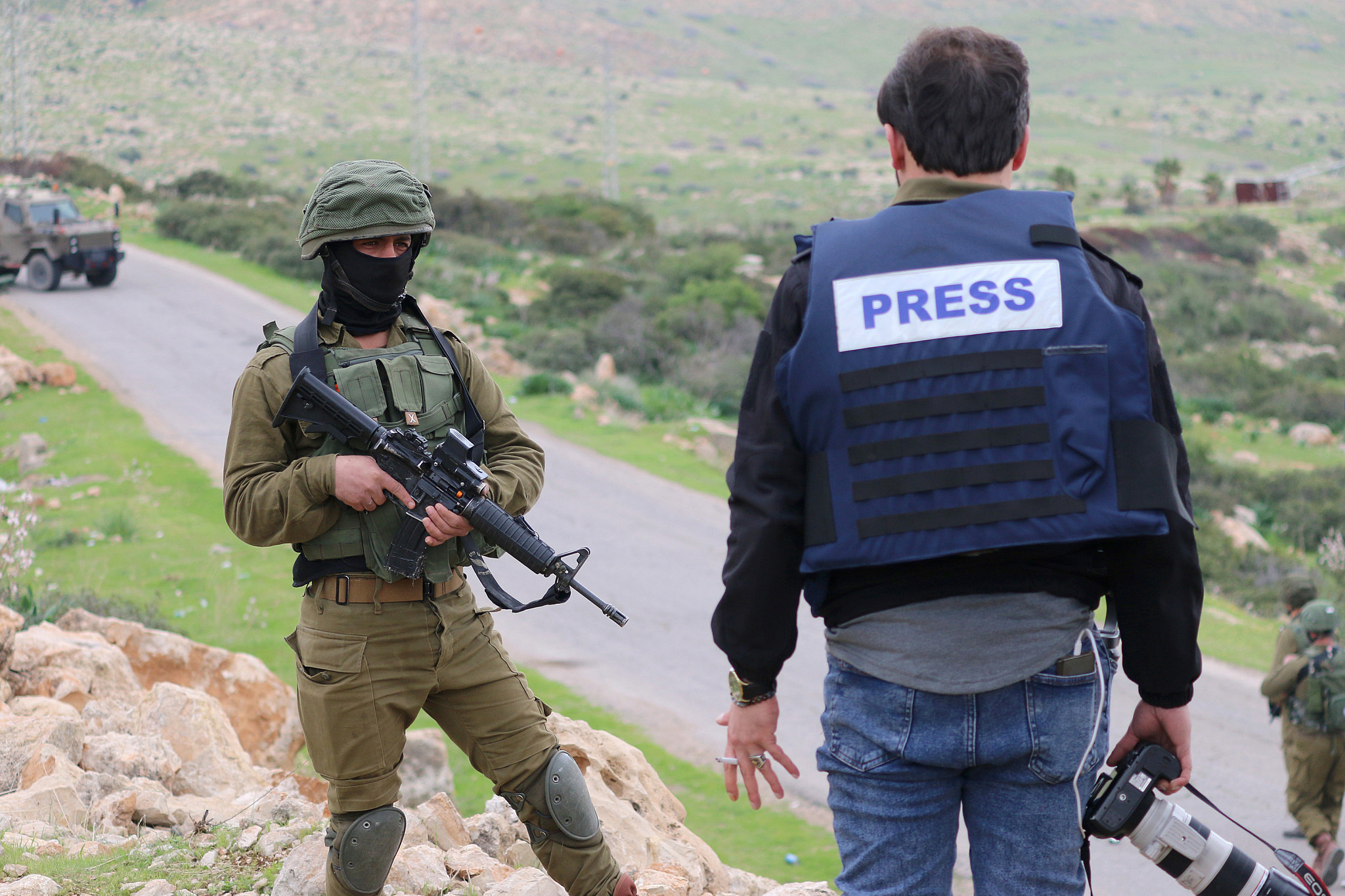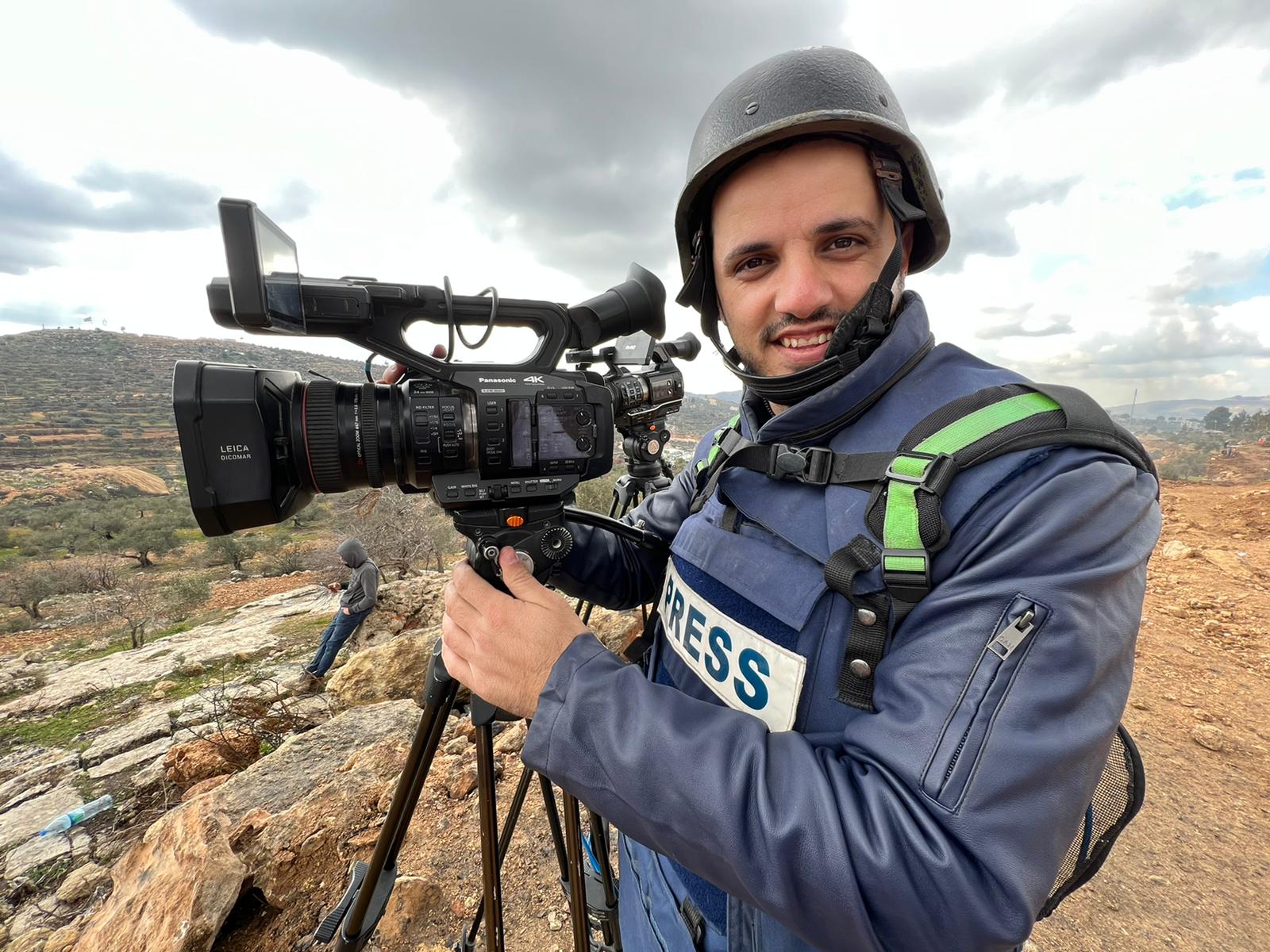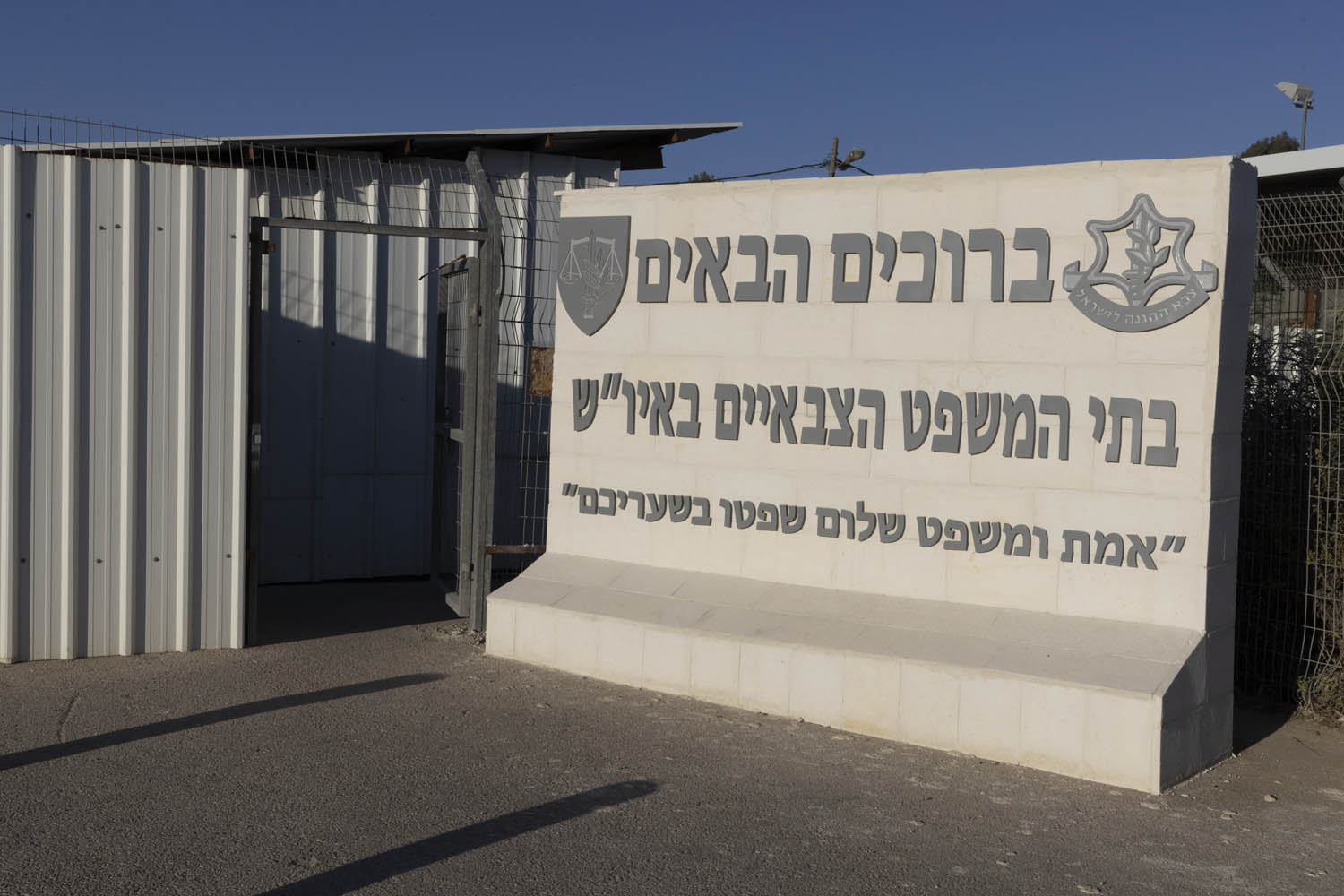This article was published in partnership with Local Call and The Intercept.
During the violent escalations in Israel-Palestine in the spring of 2021, Hazem Nasser did what he was called to do: he began filming. At the time, Nasser was working as a journalist for the Palestinian television network Falastin Al-Ghad, where Nasser’s footage captured the rising tensions amidst Jewish nationalist marches, Palestinian demonstrations, and Israeli police brutality in Jerusalem.
On May 10, Nasser set out to film a clash between Palestinian protesters and the Israeli army in the northern occupied West Bank. The day sticks out in Nasser’s memory — not for the clash itself, nor for the military strikes that began later that evening between Hamas and Israel, but for what happened to him afterward.
Nasser was on his way home when he was stopped by Israeli soldiers at the Huwara checkpoint, and taken away for interrogations. Nasser languished in detention for more than a month while the Shin Bet, Israel’s internal security service, repeatedly interrogated him.
“All the questions were about my journalism,” Nasser said. “They put images from my video reports on the table, including a funeral of a dead Palestinian, people gathering for a protest, a square honoring a shaheed [martyr], a march with Hamas flags. The interrogator told me I cannot photograph these things, because they are incitement. I told him that I am a journalist and this is my job — to show images of things that are happening, and that Israeli outlets do the same thing. He yelled at me to stop.”
In mid-June, Nasser, who is 31 and hails from the village of Shweikeh in the occupied West Bank, appeared before a court and was charged with incitement. Instead of focusing on his journalistic work, as the interrogations had, the indictment listed four old Facebook posts that he had written between 2018 to 2020, a period in which he published more than 1,000 posts. The charging document said he had praised the 2001 assassination of an Israeli Tourism Minister Rehavam Ze’evi, and called a Palestinian militant accused of murdering two Israelis a “hero,” among other allegations.
One possible reason that Nasser’s work didn’t appear in the indictment — despite being a focus of the interrogations — is that, even in the military courts of Israel’s occupation, the criteria for what constitutes incitement does not include journalism, or simply documenting events. Regardless, Nasser believes the purpose of the interrogations and the charges were one and the same: to deter him from documenting Israel’s abuses against Palestinians. Among Palestinian journalists, he is far from alone.
‘They don’t distinguish between a journalist and a participant’
Since the beginning of 2020, Israel has imprisoned at least 26 Palestinian journalists in the West Bank. In most cases, the journalists were placed under administrative detention — a common method used by Israel to hold Palestinians without filing charges — for anywhere between six weeks to 1.5 years. Nine of these journalists were indicted, most often for incitement, and on average spent about eight months in detention.
As of March 2022, there were 10 Palestinian journalists in Israeli prisons on charges relating to publishing materials online — either as private individuals or through their professional work — that were deemed “incitement,” according to Saleh al-Masri, who heads the Journalist Support Committee in Palestine. Three of the imprisoned journalists are in administrative detention; three have been indicted; and four are being held and interrogated as part of investigations. (Seven other journalists are being imprisoned for convicted charges of taking part in violent activities that had nothing to do with journalistic work)
Using interviews, media reports, and legal filings, +972, Local Call, and The Intercept reviewed the cases against many of the journalists who were held by Israeli security forces in relation to their publication of material. In interviews with us, as well as with other media outlets, seven of the journalists said that, during their interrogations, Israeli security agents showed them news videos that they had taken, which were often of confrontations between Palestinians and Israeli forces, political processions, or funerals. The interrogators told the journalists that the images constituted “incitement” and ordered them to stop documenting the events.
In some cases, the journalists were later indicted on charges unrelated to their professional work; in others, no indictment was filed at all and the journalist was imprisoned without trial and eventually set free. (The Shin Bet did not respond to a request for comment).
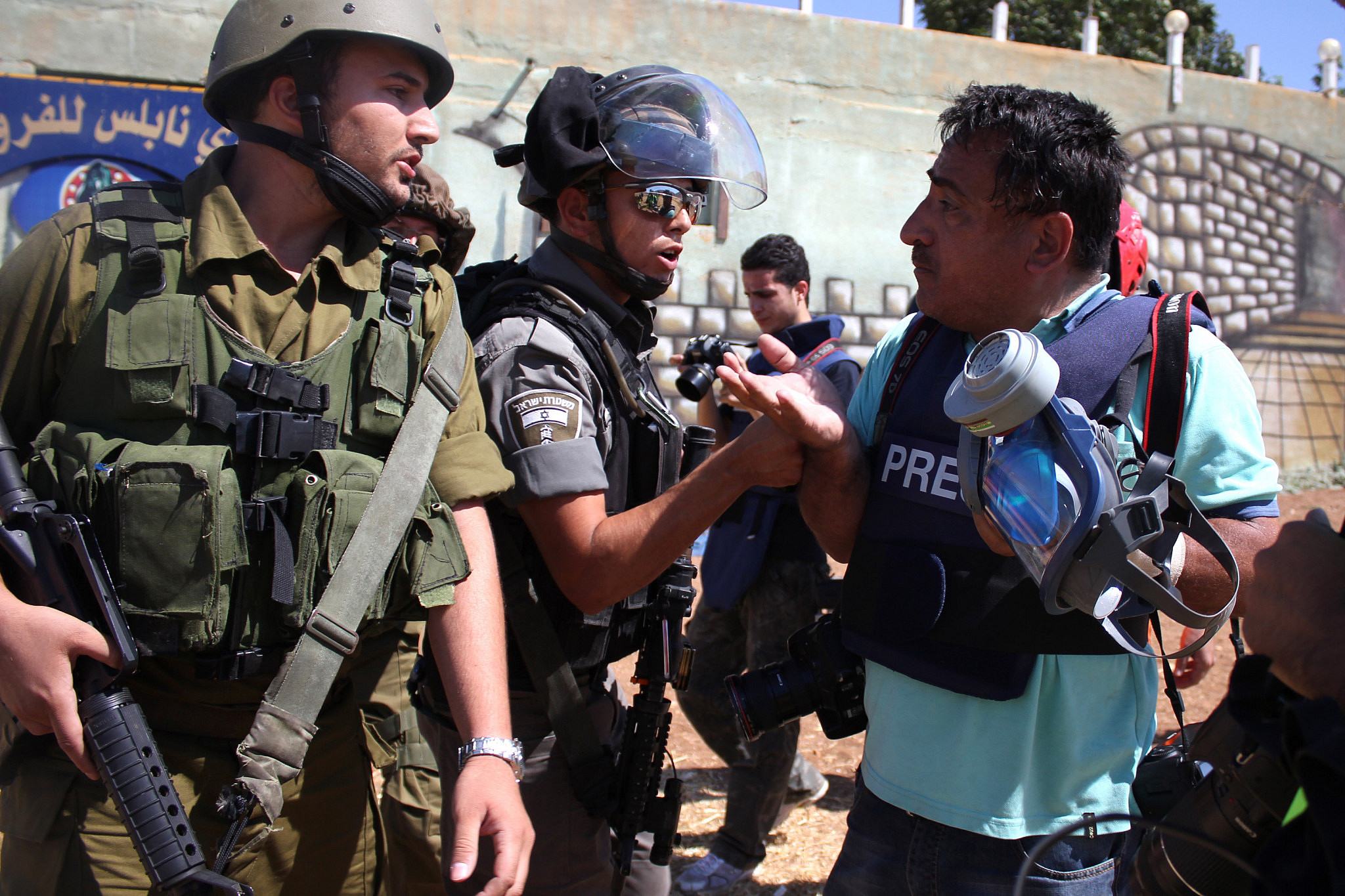
“The arrests usually take place while journalists are out in the field,” said Shireen Al-Khatib, the Monitoring and Documentation Associate for the Palestine Center for Development and Media Freedoms (MADA), which promotes and defends freedom of expression and of media in the occupied territories.
“During the interrogation,” she continued, “the journalist will be told that the reports he posts on Facebook are considered incitement — and although he is only reporting news, the fact that that news is made public is tantamount to incitement. Often, the journalist will be accused of attending a political event as a photographer or a reporter. But [the Israeli authorities] do not distinguish between a journalist who is in the field as part of his work and an active participant.”
Al-Khatib, who has interviewed dozens of Palestinian journalists interrogated by the Shin Bet, said the result of this treatment is that Palestinian journalists live in a constant state of fear, often leading to self-censorship.
‘As if the problem is the camera, not the reality’
Other Palestinian journalists offered on-the-record accounts that corresponded with Nasser’s experience. Sameh Titi, a 27-year-old reporter from the al-Arroub Refugee Camp in the West Bank, covers events in his area for Al Mayadeen, a Lebanon-based Arabic news channel said to be aligned with the militant group Hezbollah. In December 2019, he was taken into custody by Israeli security forces.
Titi said the interrogator pulled up his Facebook profile before showing him images from his own work. “He showed me a report on the closure of the entrance to the al-Arroub camp by the army,” Titi said. “The interrogator told me: ‘You are not allowed to film military positions.’” The interrogator also raised Titi’s presence at events related to the Popular Front for the Liberation of Palestine (PFLP), a leftist political group which Israel deems a terrorist organization.
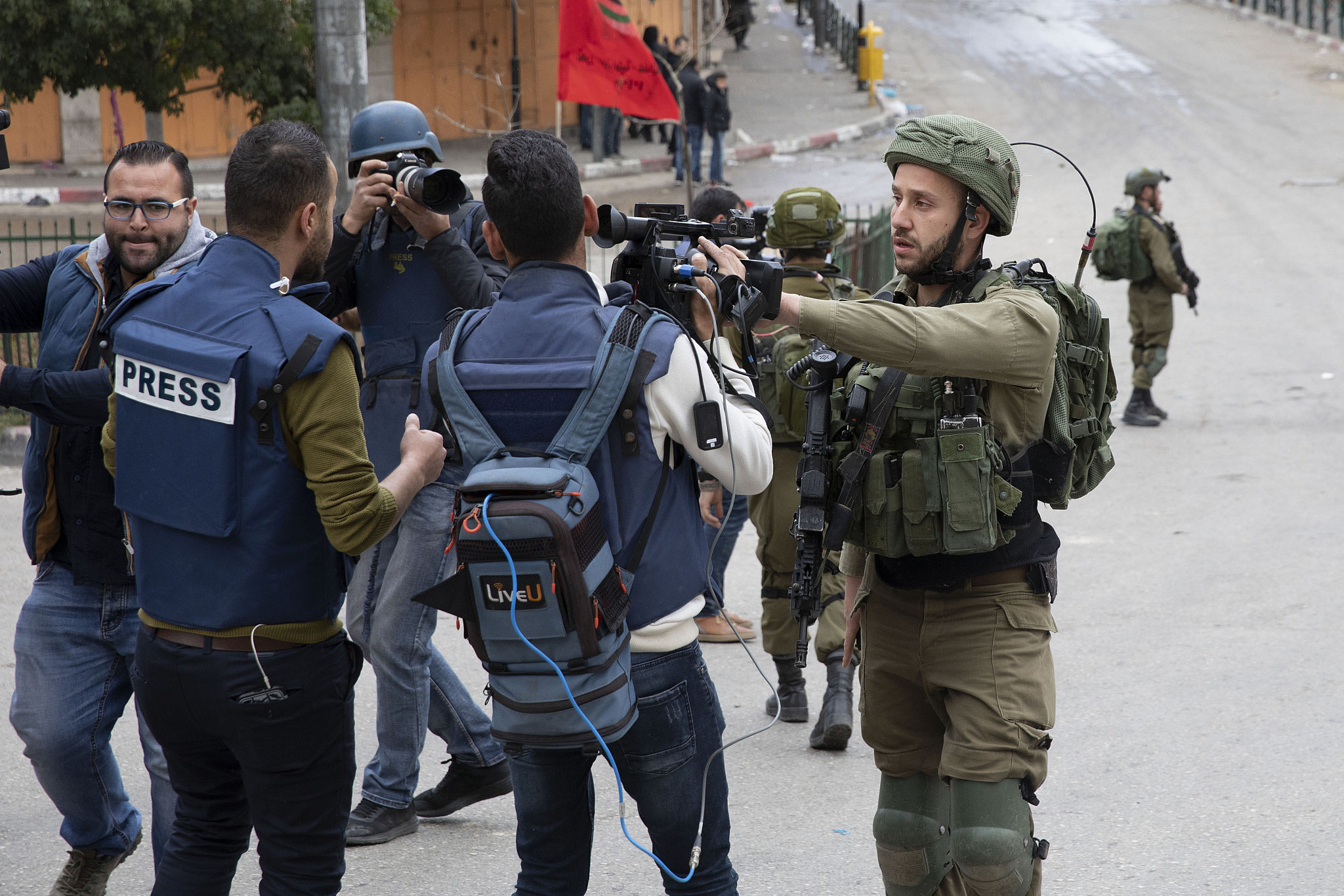
Like Titi and others, Tareq Abu Zeid, a video journalist from Jenin, was arrested in October 2020 and interrogated by the Shin Bet in its Petah Tikva facility. The interrogator, Abu Zeid recalled, told him he was arrested because his footage sows unrest among the Palestinian public.
“The whole investigation had to do with coverage as a journalist — as if the problem is the camera itself, not the reality it documents,” Abu Zeid said in an interview for Al Jazeera. Over three weeks of questioning, interrogators raised allegations of Abu Zeid’s work with Al-Aqsa TV, a station associated with the Palestinian Islamist group Hamas, which Israel considers a terrorist organization. Al-Aqsa TV was banned by Israel in 2019.
Fadi Qawasmeh, a lawyer representing Abu Zeid, argued in court that the charges against his client amounted to selective enforcement, since no legal action had been taken against any other employee at Al-Aqsa TV, and the Israeli military knew for years that Abu Zeid worked at this station, long before it was declared illegal. Abu Zeid had already been in prison for nearly 10 months when, in June 2021, the military prosecution offered him a plea deal for time served and a fine of roughly $2,500. Abu Zeid agreed and was released from prison the following month.
‘The point was to limit my journalism — and it worked’
Titi, the journalist for Al Mayadeen, was eventually charged with three offenses, some of which related to his journalistic work and others which did not.
The indictment against him cited his “presence at an illegal assembly” for attending several funerals of young Palestinians who had been killed. In 2019, Titi had covered the funeral of Omar al-Badawi, an alleged PFLP member who was killed by the Israeli military. (According to an internal army investigation, al-Badawi posed no danger to the soldiers and they did not have to use live fire.)
The indictment said that the funeral was organized by the PFLP and therefore Titi broke the law by being there. The prosecution did not mention that Titi was covering the funeral as a journalist, that Israeli and international journalists regularly cover such funerals, and that he was among hundreds of others there that day.
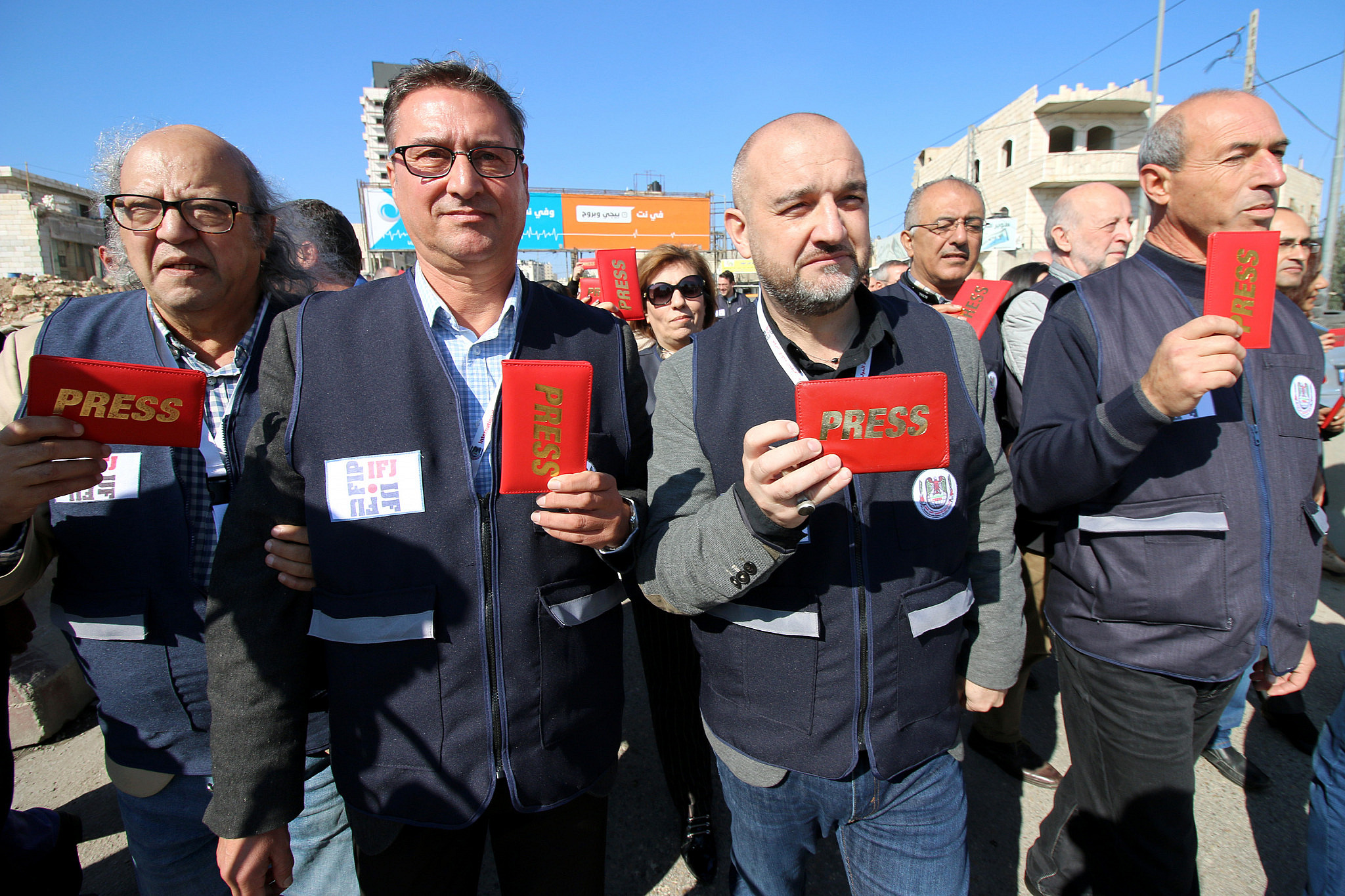
In addition to his work documenting funerals, the indictment charged that, in 2016, Titi had participated in activities on his college campus at Hebron University organized by a student group affiliated with Hamas.
The indictment also claimed that two Facebook posts by Titi constituted incitement. In one from 2018, Titi shared a photo of Palestinians who had been killed by the army — the indictment described the dead men as “terrorists” — and wrote: “Beware of natural death, do not die except from the bullets.” In a 2017 post, Titi mentioned participating in a literary competition for the Hamas-linked student group. Titi said that the social media postings were not shown to him at all during his interrogations.
In 2020, Titi took a plea; he was imprisoned for six months and fined NIS 5,000, or around $1,500.
“I stopped reporting on people who were killed and or funerals. I am afraid of filming confrontations with the army, and do not document military positions or soldiers,” he added. “The point was always to limit my work as a journalist — and it worked.”
‘Documentation is incitement ‘
Many of the journalists’ ordeals end in plea bargains with Israeli military prosecutors. Nasser, the Falastin Al-Ghad journalist, took one at the conclusion of his trial, after the judge ruled that Nasser’s Facebook posts barely meet the “low threshold” for incitement. Nasser would be handed a three-month prison sentence, expecting to receive credit for time served.
“Nasser chose to confess in order to be released,” explained Mazen Abu Aoun, his attorney. “Judges almost always rule that journalists remain in custody until the end of the proceedings. They jail them for months, then the military prosecution offers them a plea deal: confess to some of the offenses, and the punishment will amount to the number of days you have already served. After that you’ll be released immediately. That way everyone agrees.”
In the end, however, Nasser’s time served did not limit his stint in prison. Though he took the plea, he learned a week before his release date that the Shin Bet had issued an administrative detention order against him that would keep him behind bars.
Nasser languished in detention without a second trial — or even new charges — for another five months. “They didn’t have anything over which to indict me,” he said. “The West Bank was in flames in May, and as a journalist I documented everything in the field. I was arrested to prevent me from documenting. The act of documentation itself — that’s considered incitement in their eyes.”
Since he was released in December 2021, after eight months in prison, Nasser barely posts anything on Facebook. He is worried that more spurious allegations could pull him away from his family again — a possibility he can’t countenance. “I am married and have a child,” Nasser explained. “They arrested me when he was eight months old and released me when he already knew how to speak.”

